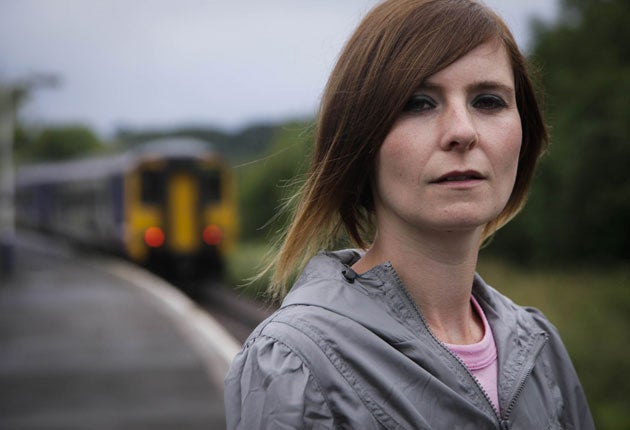Rail fares to race ahead of inflation
Passengers face 30 per cent price rise by 2014

Your support helps us to tell the story
As your White House correspondent, I ask the tough questions and seek the answers that matter.
Your support enables me to be in the room, pressing for transparency and accountability. Without your contributions, we wouldn't have the resources to challenge those in power.
Your donation makes it possible for us to keep doing this important work, keeping you informed every step of the way to the November election

Andrew Feinberg
White House Correspondent
The latest inflation figures, to be released this week, will mean "eye-watering" hikes in rail fares, with commuters the hardest hit, experts warn.
The announcement on Tuesday is expected to lead to rail fares rising by almost 30 per cent for the average passenger by 2014. This is the result of the coalition's recent decision to increase fares by 3 per cent more than inflation, from the current 1 per cent.
With economists predicting that July's rate of inflation (retail prices index) will come in at 5.1 per cent, commuters could face having to pay an average of 8.1 per cent more for their train tickets next year, and around 28.4 per cent more by 2014.
This means that fares would increase four times faster than the rate of the average income. Some season tickets could cost up to £1,500 more over the next four years.
The Campaign for Better Transport will be joined by environmental group Climate Rush, trades union and the shadow spokeswoman for Transport, Maria Eagle, at Waterloo station on Tuesday morning to protest against the price increases. They will point out that the UK already has the highest train fares in the world. While the average season ticket costs just over £2,000, passengers in London's commuter belt pay almost £4,000 to travel to work in the capital.
Ms Eagle said the reintroduction of "flex" – which enables train operating companies to add an additional 5 per cent to the cost of selected journeys – will mean some commuter trips could see a price increase of 13 per cent by next year.
She said: "The biggest fare increases will be on the trains where people don't have a choice. It will be a huge squeeze on living standards and it won't help economic growth."
Rosie Fluin, 31, lives in York with her husband and 19-month-old daughter, Scarlett. She commutes into Leeds three days a week to work part-time for the city's council. Spending £185 of her £920 monthly income on train fares, with childcare costs too, she is not sure if she can afford to carry on working in her present job.
"I don't know if it will be worth my while travelling to Leeds, but jobs here in York are a lot less well paid and they are few and far between."
While train fares rose by an average 6.2 per cent last year, more than 1.35 billion train journeys were made, representing a 7.6 per cent increase on 2009, according to figures from the Office of Rail Regulation.
The coalition plans to reduce the annual subsidy of £4.6bn to the rail industry, transferring more of the cost of travel to rail users. It is predicted that the number of passengers will fall by 4 per cent as a result of fare rises.
The Transport minister Theresa Villiers told The Independent on Sunday that the "long-term solution" was to get "the cost of running the railways down" and "deliver much-needed improvements on the rail network". She stressed that "if we succeed, we hope to see the end of above inflation rises in regulated fares".
Transport Scotland and Merseytravel have both decided to keep their rail services at the current rate of inflation plus 1 per cent. Individual rail fares across the country are expected to be announced in November.
Subscribe to Independent Premium to bookmark this article
Want to bookmark your favourite articles and stories to read or reference later? Start your Independent Premium subscription today.
Join our commenting forum
Join thought-provoking conversations, follow other Independent readers and see their replies
Comments